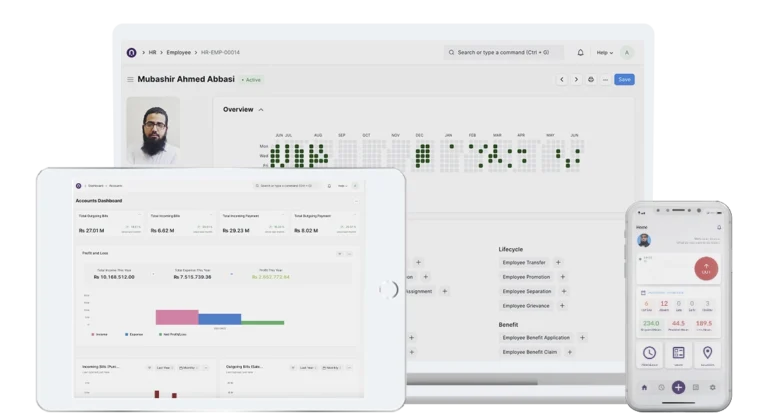Why App Development is the Future of Business Growth
In today’s rapidly evolving digital landscape, businesses are constantly seeking new avenues to stay competitive and expand their reach. One of the most transformative innovations driving growth across industries is mobile app development. The rise of smartphones, tablets, and other mobile devices has dramatically reshaped consumer behavior, making mobile apps a critical part of a company’s strategy. In this article, we explore why app development is not just a trend, but the future of business growth.
The Mobile Revolution: Changing Consumer Behavior
The number of global smartphone users continues to skyrocket, with billions of people relying on their mobile devices for everyday activities. From shopping to banking, consumers have embraced the convenience of mobile apps, which offer an unmatched user experience compared to traditional websites. Businesses that partner with Frame X Lab for app development are positioned to capitalize on this growing trend, ensuring they engage with this expanding audience through cutting-edge mobile solutions.
Mobile apps provide companies with a direct channel to their customers, allowing for personalized experiences, push notifications, and the ability to interact in real time. These features enhance customer engagement and drive higher conversion rates, making mobile apps an essential tool for businesses aiming to grow in a digitally competitive market.
Enhanced Customer Experience Through Apps
One of the primary reasons app development is the future of business growth is its ability to significantly improve the customer experience. In today’s marketplace, consumers expect seamless interactions, instant responses, and tailored services. Mobile apps can meet these demands by offering a user-friendly interface, intuitive navigation, and a streamlined purchasing process.
Apps also allow businesses to leverage customer data to provide personalized recommendations and content. This level of personalization not only fosters customer loyalty but also increases sales by promoting products or services that meet individual preferences.
Furthermore, app-based loyalty programs have proven to be highly effective. Businesses can encourage repeat purchases by offering exclusive deals and rewards through their app, thereby fostering long-term customer relationships.
Increased Operational Efficiency
App development not only improves the customer experience but also enhances operational efficiency within a business. By streamlining processes, reducing manual tasks, and automating certain functions, apps enable businesses to operate more efficiently. For example, mobile apps can integrate with existing software systems, allowing for better management of inventory, sales, and customer interactions.
Moreover, apps facilitate real-time communication and collaboration between teams, even when working remotely. This increased productivity ultimately contributes to a company’s growth by optimizing internal operations, reducing costs, and improving overall performance.
Access to a Global Market
One of the most significant advantages of mobile apps is their ability to connect businesses with a global audience. As the world becomes more interconnected, companies that invest in app development can easily expand their reach to new markets. Unlike traditional brick-and-mortar stores, mobile apps are not limited by geographical boundaries. They provide businesses with the tools to offer products and services to customers around the world, 24/7.
This global accessibility is particularly crucial for e-commerce businesses. By developing an app, companies can tap into the growing trend of mobile shopping, which has seen an exponential increase in recent years. In fact, mobile commerce now accounts for a significant portion of online sales, making it essential for businesses looking to capitalize on this opportunity.
Building Brand Loyalty and Trust
A well-designed app can significantly enhance a brand’s image and establish trust among customers. When users have a positive experience with an app, they are more likely to associate the brand with reliability and quality. This, in turn, fosters brand loyalty, which is essential for long-term growth.
Mobile apps also provide businesses with a platform to communicate directly with their customers, offering a more personalized experience than traditional websites or email marketing. This direct interaction helps build stronger relationships and allows businesses to address customer concerns promptly, further enhancing trust.
Push notifications are another powerful feature that can be used to engage with customers. By sending timely updates, reminders, or special offers, businesses can keep their audience informed and engaged. However, it’s essential to strike a balance between useful notifications and spam, as overuse can lead to app uninstalls.
Monetization Opportunities Through Apps
Mobile apps open up various monetization opportunities for businesses. Beyond direct sales, companies can explore models such as in-app purchases, subscriptions, or advertising. These additional revenue streams make app development a smart investment for businesses looking to diversify their income sources.
For example, many businesses offer freemium models, where the app is free to download, but users can access premium features through in-app purchases or subscriptions. This approach allows businesses to attract a broad audience while monetizing loyal customers who are willing to pay for an enhanced experience.
In-app advertising is another effective way to generate revenue. With targeted ads, businesses can offer third-party promotions while still providing value to their users. This model is particularly beneficial for apps with large user bases, as it enables companies to generate income without charging users directly.
Staying Ahead of Competitors
The competitive landscape is constantly evolving, and businesses must adapt to stay ahead. Developing a mobile app is no longer a luxury; it’s a necessity for businesses that want to thrive in the digital age. Companies that invest in app development are better positioned to meet customer expectations, offer innovative solutions, and outperform their competitors.
Mobile apps also enable businesses to stay agile, allowing for faster updates and improvements compared to traditional websites. This flexibility ensures that companies can respond quickly to market changes, new technologies, or customer feedback, helping them maintain a competitive edge.
Integration with Emerging Technologies
As technology continues to advance, mobile apps are becoming more sophisticated, incorporating features such as artificial intelligence (AI), machine learning (ML), and blockchain. These technologies are revolutionizing industries by providing businesses with tools to enhance their services, improve efficiency, and create new opportunities for growth.
For example, AI-powered chatbots can provide instant customer support, while ML algorithms can analyze user behavior to deliver personalized recommendations. Blockchain technology, on the other hand, is transforming the financial sector by providing secure, transparent, and decentralized transactions through app-based platforms.
By integrating these emerging technologies, businesses can offer innovative solutions that set them apart from their competitors, driving growth and expanding their market share.
App Analytics: Understanding User Behavior
To maximize the benefits of mobile apps, businesses must leverage data-driven insights to understand their users better. App analytics provide a wealth of information, including how users interact with the app, which features are most popular, and where improvements can be made. By analyzing this data, businesses can optimize their apps to deliver a more engaging user experience and address any pain points that may exist.
Additionally, app analytics help businesses understand which marketing strategies are most effective. By tracking the performance of push notifications, in-app messages, or promotions, companies can refine their approach to ensure that they are reaching their audience in the most impactful way. This focus on continuous improvement is essential for long-term success, as it ensures that the app remains relevant and competitive in an ever-changing market.
Security and Privacy Concerns in App Development
In today’s digital age, security and privacy are of paramount importance to consumers. As mobile apps become more sophisticated, they often require access to sensitive information such as payment details, personal data, and location services. Ensuring that this information is protected is critical for building trust with users and maintaining a positive brand image.
App security must be a top priority in the development process. Businesses should implement robust encryption, multi-factor authentication, and secure payment gateways to safeguard user data. Additionally, regular updates and security patches are essential for protecting the app against emerging threats and vulnerabilities.
Privacy concerns are also on the rise, with consumers becoming increasingly aware of how their data is being used. Companies must be transparent about their data collection practices and comply with regulations such as GDPR (General Data Protection Regulation) and CCPA (California Consumer Privacy Act). By prioritizing security and privacy, businesses can foster trust and loyalty, which are key to long-term growth.
Cross-Platform Development: Reaching a Wider Audience
The mobile landscape is diverse, with users spread across various platforms such as iOS, Android, and even Windows Mobile. To maximize their reach, businesses must develop apps that are compatible across multiple platforms. This is where cross-platform app development comes into play.
Cross-platform development allows businesses to create a single app that can run on different operating systems, reducing development time and costs. Popular frameworks like React Native, Flutter, and Xamarin enable developers to write code once and deploy it across multiple platforms. This not only ensures that businesses can reach a wider audience but also allows for faster updates and easier maintenance.
By investing in cross-platform development, businesses can ensure that their app is accessible to all users, regardless of the device they are using. This inclusive approach is essential for businesses looking to expand their customer base and tap into new markets.
The Role of AI and Machine Learning in App Development
As artificial intelligence (AI) and machine learning (ML) technologies continue to advance, their integration into mobile apps is becoming more widespread. These technologies enable businesses to offer personalized experiences, automate tasks, and gain valuable insights into user behavior.
For example, AI-powered chatbots can provide real-time customer support, reducing the need for human intervention and improving response times. Machine learning algorithms can analyze vast amounts of user data to make personalized recommendations, improving the overall user experience. Additionally, AI can be used for predictive analytics, allowing businesses to anticipate customer needs and tailor their offerings accordingly.
The integration of AI and ML into mobile apps is not just a trend—it’s a necessity for businesses looking to stay ahead of the competition. These technologies allow companies to offer innovative, intelligent solutions that enhance the customer experience and drive business growth.
Progressive Web Apps: The Future of Mobile Experience?
While native apps have traditionally been the go-to solution for businesses, Progressive Web Apps (PWAs) are gaining traction as a viable alternative. PWAs combine the best features of websites and mobile apps, offering a fast, reliable, and engaging experience without requiring users to download an app from the app store.
One of the key benefits of PWAs is that they work across all devices and platforms, making them highly accessible. They also consume less storage space and data, making them an attractive option for users with limited device capacity or slower internet connections. For businesses, PWAs offer a cost-effective solution, as they eliminate the need for separate development for different platforms.
However, PWAs do have some limitations compared to native apps, particularly when it comes to accessing certain device features like push notifications and geolocation. Despite this, they represent a significant step forward in the evolution of app development, and businesses should consider them as part of their broader digital strategy.
Sustainability in App Development: A Growing Priority
Sustainability has become a major concern for both consumers and businesses, and the tech industry is no exception. As companies develop mobile apps, they must consider their environmental impact and take steps to minimize it. This includes reducing energy consumption, optimizing code for efficiency, and choosing eco-friendly hosting services.
Sustainable app development not only benefits the environment but also enhances a brand’s reputation. Consumers are increasingly choosing to support companies that align with their values, and sustainability is a key factor in these decisions. By adopting sustainable practices in app development, businesses can appeal to eco-conscious customers and build a more positive brand image.
The Future of App Development: What to Expect
The future of app development is filled with exciting possibilities. As new technologies emerge, mobile apps will become even more integrated into our daily lives. We can expect to see further advancements in AI, AR (augmented reality), VR (virtual reality), and IoT (Internet of Things) within apps, providing users with more immersive and interactive experiences.
Additionally, the rise of 5G technology will unlock new opportunities for app developers. With faster internet speeds and reduced latency, 5G will enable the creation of more complex, data-intensive apps that were previously not feasible. This will revolutionize industries such as gaming, healthcare, and education, offering businesses new ways to engage with their customers and drive growth.
In conclusion, app development is a critical component of the future of business growth. As businesses continue to innovate and embrace emerging technologies, mobile apps will play an increasingly important role in enhancing customer experiences, improving operational efficiency, and driving revenue. Companies that invest in app development today will be well-positioned to thrive in the digital economy of tomorrow.
Conclusion
In conclusion, mobile app development is not just a passing trend; it is the future of business growth. By enhancing customer experiences, improving operational efficiency, and providing access to a global market, mobile apps offer businesses unparalleled opportunities for expansion. As the digital landscape continues to evolve, companies that invest in app development will be better equipped to adapt, innovate, and thrive in an increasingly competitive environment.






